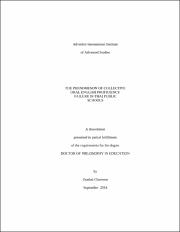The Phenomenon of collective oral English proficiency failure in Thai public schools
Abstract
The increasing popularity of English as a global language has driven most Asian countries to create a national mission for their citizenry to acquire English competency (DeCapau & Wintergerst, 2010). Conversely, Thailand continues to lag behind the most of the Association of Southeast Asian Nations or ASEAN community given the majority of the population’s inability to employ English for communicative purposes (Frederickson, 2012; Takahashi, 2012). Further, English deficiency among the population is patently recognizable.
This study employed a nested ethnographic phenomenological design to investigate the recurring phenomenon of collective oral English proficiency failure among students in Thai public schools. The study employed both method and data source triangulation. Thus, it investigated multiple participant perspectives: students, teachers,
and parents; and included observations and document (textbook) analysis. These methods were purposefully employed to capture the multifaceted reality of the phenomenon.
The findings confirmed the recurring phenomenon among the majority of participants under study due to various sociocultural mediators. These served as the underlying mechanisms mediating and directing degrees of acculturation, level of motivation, and linguistic learning behavior among the Thai population under study. Along with the identified significant mediators, the study also suggested varying degrees of mediating effects of sociocultural mediators present in the second language (L2) learning context under study. Along the continuum of L2 or foreign language learning, the significant mediation was found between the proposed levels of indecisive and impartial learning level for learners reported having difficulty translating L2 content knowledge to oral performance.
Other than generating useful recommendations grounded on suitability and cultural appropriateness for the local context, this study promoted a further understanding through an L2 acquisition developmental theory that emerged as a result of findings. The developmental theory illustrated the recurring phenomenon and served as an explanation for the participants’ inability to acquire English as an L2 for communicative purposes. It was localized by context-sensitivity as a careful consideration were given to the context as the breeding ground of L2 developmental progress and further development of oral proficiency.


